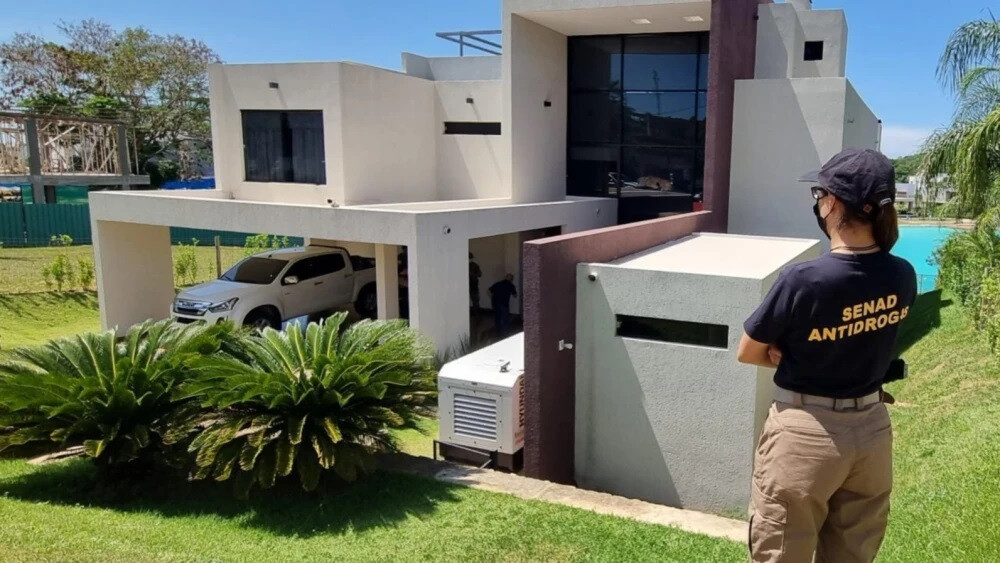
Asunción, Paraguay – A shocking analysis has emerged, asserting that the proliferation of organized crime, not only in Paraguay but globally, is underpinned by the complicity and protection of state institutions and authorities. Uruguayan sociologist Gabriel Tenenbaum recently highlighted the gravity of this issue in an interview with local media, elaborating on how organized crime leverages the institutional structures of the state to securely protect and expand its operations.
Tenenbaum argues that the notion of the mafia 'infiltrating' the state does not accurately reflect reality. Instead, he emphasizes that terms like 'protection' or 'complicity' on the part of administrative authorities or political leaders who run the state are more appropriate. He asserts that a relationship of mutual dependence with the state is essential for the successful operation of organized crime's 'business.'
"The word 'infiltration' attributes a passive meaning to the actions taken by high-ranking officials in institutions, political authorities, or government administrations for the operation of their business," Tenenbaum stated. He strongly criticized, "I believe the most suitable concept for how the phenomenon ultimately manifests is 'protection.' Institutions are not being infiltrated by organized crime; rather, they are on the payroll of criminal organizations."
Sophisticated Operations of Organized Crime and the State's Role
Tenenbaum explained the diverse modus operandi of organized crime, particularly drug trafficking. He pointed out that moving millions of dollars' worth of goods requires immense logistical capabilities, and specialized personnel are needed to facilitate the movement of money and the establishment of infrastructure.
"To execute all of this, organized crime requires the protection of individuals in key positions within both the public and private sectors," he emphasized. For instance, he stated that the entire process of transporting four tons of cocaine from Bolivia to Paraguay, then moving it via waterways to Uruguay or by light aircraft, and finally shipping it from the Port of Montevideo to ports like Hamburg or Berlin, would be impossible without protection.
He explained that organized crime utilizes the same air and maritime transport routes and logistics systems as legitimate exports such as soybeans or meat. "Protection is always needed, and that protection is provided in various ways: through legal regulations, through the opacity of states with insufficient oversight, and, of course, through corruption." Tenenbaum added that massive crimes, such as the 'Marset' and 'Insfrán (Tío Rico)' cases, absolutely required protection to be executed.
'Flying Under the Radar,' 'Dark Tunnels'… The Essence of Misconceptions
Tenenbaum also questioned common expressions suggesting that the mafia 'flies under the radar' or 'moves through dark tunnels.'
"For all of this to be executed, considering its scale, various mechanisms are needed to make the market work: complicity, favors, silence, debts repaid, etc.," he explained. Therefore, he reiterated, the most fitting concept is 'protection.'
Tenenbaum noted that the relationship between political power and mafia power is sometimes direct, and at other times it's formed through a third party connecting the two forces.
Dictatorial Regimes Provided the Foundation for Organized Crime's Consolidation
Gabriel Tenenbaum pointed out that dictatorial regimes in Latin America created optimal conditions for drug trafficking and organized crime to take root and strengthen. He supported this analysis by citing the case of Uruguay.
"In Uruguay, during the dictatorial regime of the 1970s, economic policies were redesigned, and in that process, the state transformed into a flexible financial center for international capital," he explained. While Uruguay was not a tax haven, it became an attractive financial market for large international capital.
Tenenbaum cited examples of these changes, including: the introduction of bank and tax secrecy, the development of offshore financial products allowing law firms to manage securities abroad without passing through their own country, the development of casinos, and the deregulation of dollar use.
He further added that the Uruguayan dictatorial regime created regulations allowing precious metals like gold and silver to be exported without taxes or records. "With the establishment of such an attractive international capital system, protection was afforded to dirty capital. Based on these structures formed in Uruguay, transnational organizations such as Medellín, Cali, Juárez, Sinaloa, Jalisco New Generation, and Norte del Valle operated, and European organizations also operated in Uruguay for money laundering and capital repatriation," he stated.
Tenenbaum emphasized that these mechanisms enabled money laundering, a core element of organized crime.
Tenenbaum's Key Assertions:
"Institutions are not being infiltrated by organized crime; rather, they are on the payroll of criminal organizations."
"To move their business, the mafia requires the protection of individuals in key positions within both the public and private sectors."
"Marset and Insfrán, and all the structures they built, needed protection to operate."
This analysis suggests that organized crime does not merely operate in the shadows but is firmly rooted through the tacit approval and protection of state power. This should be recognized as a serious problem facing not only Paraguay but Latin America as a whole, and indeed, the international community.
[Copyright (c) Global Economic Times. All Rights Reserved.]



























